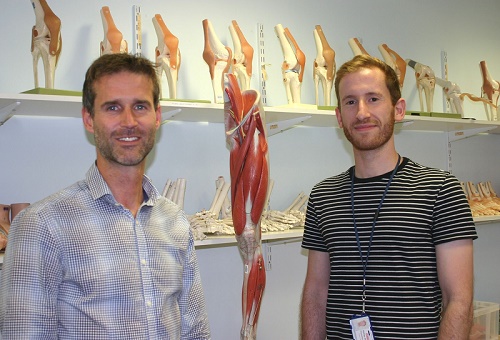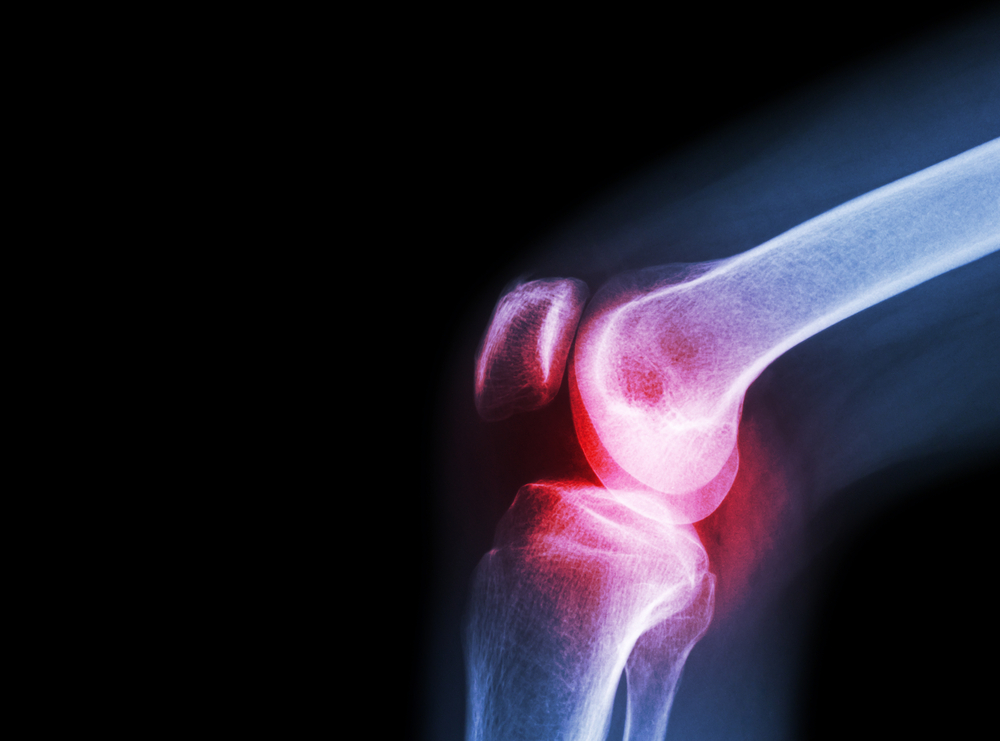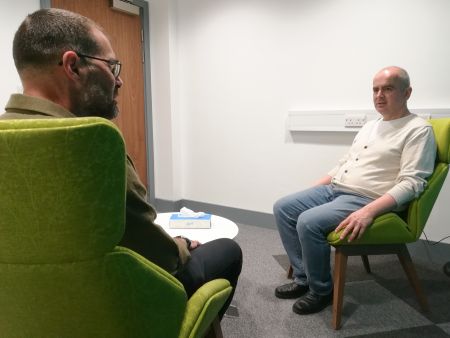
Study uses movement sensors to manage painful condition
Monday 8 October 2018
A ground breaking study involving a Salford Royal physio is aiming to find a new way to help people with painful knee osteoarthritis by using movement sensors to help them manage their pain better.
About 10% of people aged over 55 have troubling knee osteoarthritis, of whom around a quarter are severely disabled.
People with the condition often suffer severe pain and in extreme cases need knee replacement surgery.
The condition happens when cartilage around the knee joint becomes worn – as well as age, being overweight is a major risk factor. Those affected tend to walk in a way in which they over-tense the muscles of their knees. Scientists now believe that treatments that tackle this stiff gait, which increases loading on the knee, could hold the key to reducing pain.
Dr Steve Preece, Research Centre Director in the School of Health Sciences at the University of Salford is leading the research. He is working with Salford Royal NHS Foundation Trust Senior Physiotherapist Nathan Brookes on a project which is funded by the National Institute for Health Research’s (NIHR) Research for Patient Benefit programme.

Together, they are working alongside physiotherapists and patients at the Northern Care Alliance NHS Group’s Salford Royal and Fairfield General Hospital in Bury, as well as Stockport NHS Foundation Trust and Manchester University NHS Foundation Trust.
Under the new technique, small sensors placed on the knee muscles are used to provide information to patients on how they are coordinating their leg movements during everyday tasks, such as walking. With this feedback, patients learn to improve their muscle control and consciously reduce muscle tension.
They will spend 18 months gradually refining the approach while working with up to 40 patients, asking for feedback on whether they feel the treatment has helped and also working with physiotherapists.

Previous research has shown that people with knee osteoarthritis tend to over-tense the muscles at the front and back of the thigh, giving them a stiff style of walking and increasing the stress on the knee joint.
Dr Preece explained: “People don’t realise they’re doing this and are amazed when they see how different their muscle coordination is from a healthy person. At present scientists are not sure why people with knee osteoarthritis over-tense their muscles. It is possibly a natural response to pain or something that may be part of the cause of osteoarthritis.
“Currently physiotherapists give these patients exercises to strengthen their muscles but we are exploring whether it would be better to find ways of helping them coordinate their muscles instead.
If we can improve their muscle coordination, and reduce their pain through less invasive treatments, that would be a major improvement on current practice as well as much cheaper for the NHS.
“If we can improve their muscle coordination, and reduce their pain through less invasive treatments, that would be a major improvement on current practice as well as much cheaper for the NHS.”
Wendy Manock, aged 80, one of the patients to take part in the programme, said: “I really have found it very beneficial, and I like the one to one sessions.
“It opens up your mind to something you’ve been unaware of your whole life – the idea that you use so many muscles just to stand up. We have to train ourselves to relax, as the tightening of the muscles is what causes the problems.”





